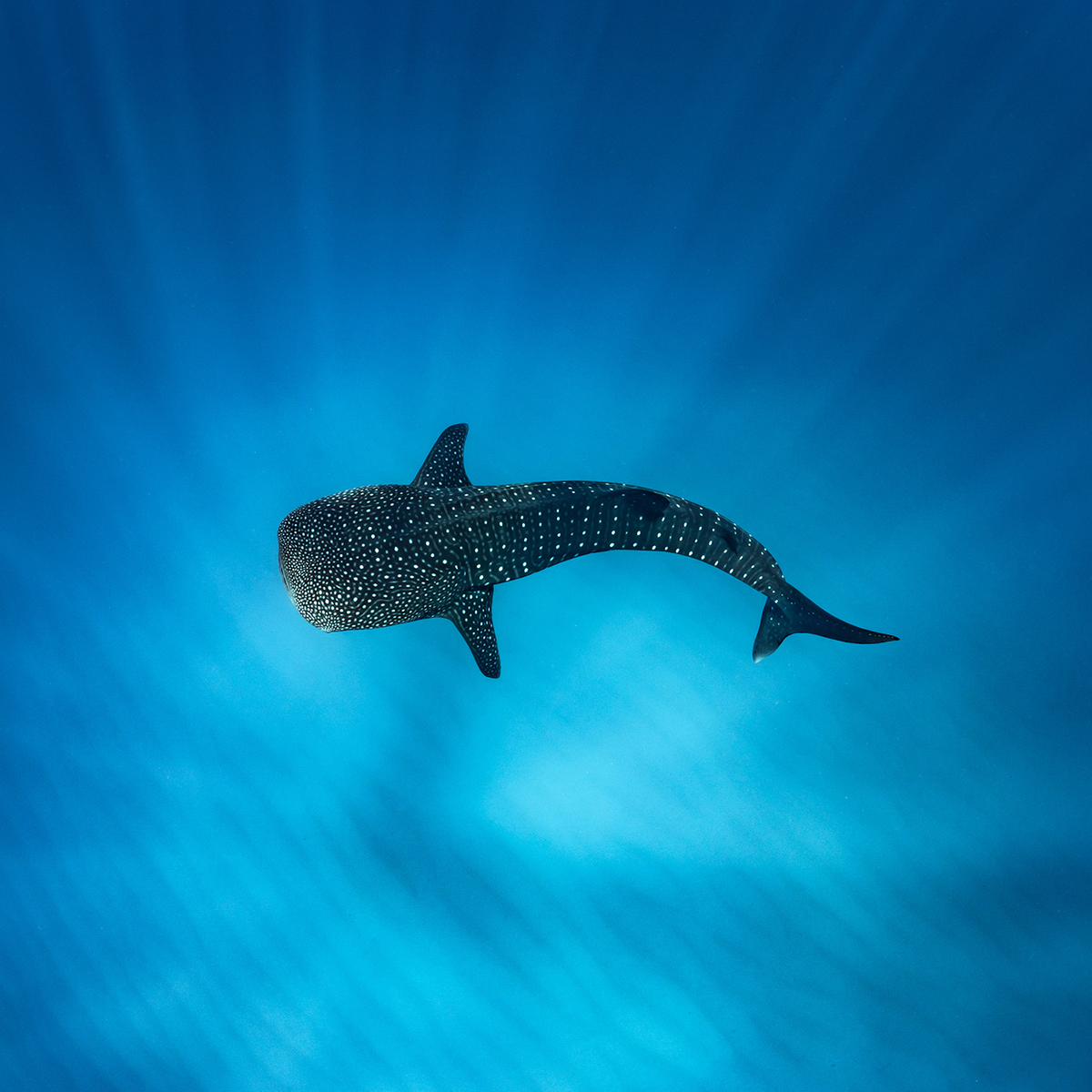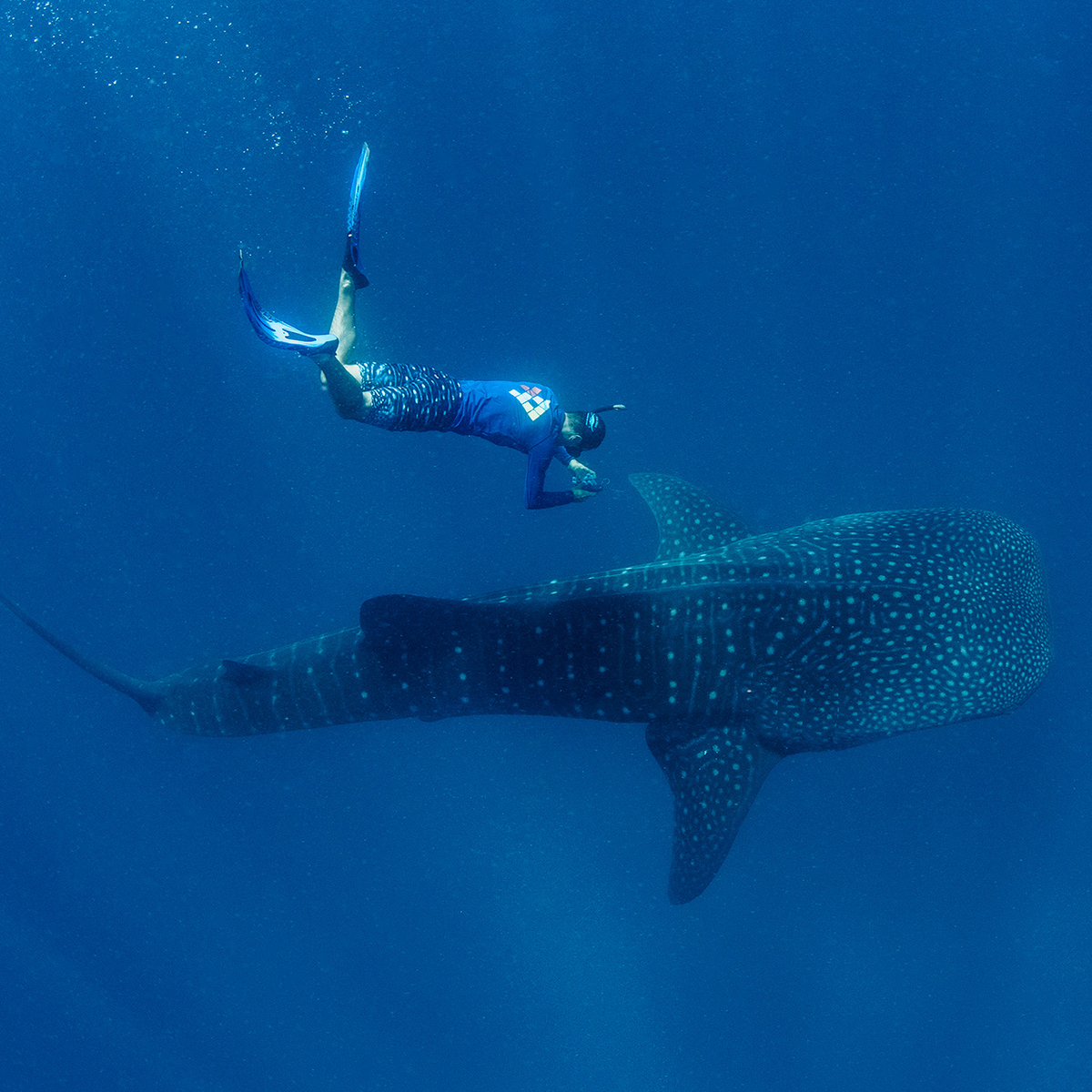Watches and Culture focuses on the ocean. Watches and Culture focuses on the ocean. Watches and Culture focuses on the ocean. Watches and Culture focuses on the ocean. Watches and Culture focuses on the ocean
Watches and Culture focuses on the ocean. Watches and Culture focuses on the ocean. Watches and Culture focuses on the ocean. Watches and Culture focuses on the ocean
27 October 2022
Watches and Culture focuses on the ocean
Forum, Sustainability
As the theme chosen by Watches and Culture for this year, sustainability came under the spotlight at the Watch Forum, held in September in Geneva. It will also be addressed through Watches and Culture’s other activities, not least its online Forum which is looking in greater depth at the ocean.
Watches and Culture, the cultural arm of the Fondation de la Haute Horlogerie, has chosen sustainability – a matter of huge importance and scale – as its theme this year. Topics relating to the environmental impact of human activity were addressed at the Watch Forum, which held its first edition in Geneva on September 13. A day of ideas and debate for watchmaking professionals, this annual event aims to educate the industry as a whole on the challenges to come and encourage decision-makers to take action. As a continuation of this in-person event, the Watches and Culture digital platform has already reported on the different panel discussions that took place at the forum. It now opens the debate to a wider audience and, over the coming months, will further examine the theme of sustainability with a focus on the ocean.
PRESS REVIEW
The role of the United Nations (reference articles 1-4)
“The planet is facing the triple crises of climate disruption, biodiversity loss and pollution. The ocean shoulders much of the burden.”(1) Speaking at the One Ocean Summit, held in February in the French coastal city of Brest, Secretary-General of the United Nations António Guterres could not have been clearer. The UN, whose Sustainable Development Goal (SDG) 14 is to “conserve and sustainably use the oceans, seas and marine resources”, is keeping a close watch on the state of the ocean, and many reports and articles on the subject are published on the UN News website(2). In the face of this urgent situation, when “the communities who rely on the ocean are hurting as well”, in 2021 the United Nations launched the Ocean Decade and is supporting a number of international summits with the purpose of protecting this shared heritage(3). The One Ocean Summit is one of them. Delegates addressed a range of topics(4) of vital importance to maintaining a healthy ocean and, by extension, a healthy planet. These included plastic pollution, ocean science and governance, maritime transport, overfishing, protected marine areas and deep-sea mining.
Mining and biodiversity (reference articles 5-14)
On the latter point, at the World Conservation Congress in Marseilles, France, the International Union for Conservation of Nature (IUCN) passed a motion calling for a moratorium on deep seabed mining(5).until scientific research and assessments of the potential impacts of mining on deep sea life have been carried out. In the interim, it has asked the International Seabed Authority to halt any issue of new mining contracts. Because it is rich in mineral resources, the sea floor has become a target for national governments and mining companies(6). While commercial mining is still in its early stages, if the 29 exploration permits so far granted to countries including France and China were to become exploitation contracts, this would correspond to the largest mining operation in human history.
Mining is not the only danger facing marine life. Overfishing is another. Certain marine animals now swell the ranks of the Red List of Threatened Species. Over one third of sharks and rays, the second-most threatened vertebrate group after amphibians, risk extinction(7). Between 2003 and 2020, EU countries exported 53,407 tonnes of shark-fin products to Asia with the result that Europe “dominates nearly half the trade”(8). While some species are disappearing, others are thriving. Human activity in certain parts of the globe has created an ideal environment for jellyfish to proliferate, disturbing local ecosystems and interfering with economic activity(9). Should we need any further convincing, images captured by underwater photographers play an important role in highlighting the ocean’s struggle to survive(10).
Climate change is another huge threat weighing on biodiversity. We know that climate disruption has adverse impacts on marine ecology, compounded by the increased levels of greenhouse gases in the atmosphere that cause ocean water to become acidic as it absorbs carbon. Can we put a figure on the impending disaster? In the worst-case scenario that climate change accelerates as a result of continued high emissions, recent research projects that close to 90 per cent of the assessed marine species will be at high or critical risk11(). Coral reefs are an example of how climate change is putting marine life under stress: analysis by the Global Coral Reef Monitoring Network states that 14 per cent of the world’s coral reefs were lost in the decade between 2009 and 2018(12). This constitutes a disaster in environmental terms: even though coral covers barely one per cent of the ocean floor, it provides habitat for a quarter of marine flora and fauna. It is also an important source of protein for new medicines. If the decline continues at this rate, there is a risk that coral will die out completely as a result of global warming(13). But coral is resilient and miracles can happen: a vast coral reef “in pristine condition” has been discovered near Tahiti at a depth of 30 metres(14).
Global warming (reference articles 15-19)
In her book L’Imposture Océanique, published in October 2021, Catherine Le Gall posits that greenhouse gases pose the biggest threat to the ocean(15). The ocean absorbs 90 per cent of the excess heat trapped in the atmosphere by greenhouse gases, and has absorbed between 20 and 30 per cent of carbon emissions from human activity since 1980. The cost of this “service” is ocean acidification. While global warming is not the only danger the ocean must contend with - Le Gall also points to the vacuity of carbon credits, bluewashing, the very relative effectiveness of protected marine areas and the links between business and certain NGOs - rising ocean temperatures are a serious cause for concern, having passed the point of no return in 2014(16). Half of human-driven sea level rise is due to ice melt and half to increased water temperature. In certain regions, however, thermal expansion is the sole cause(17).
Another phenomenon that is indicative of climate change is the warmer waters flowing towards the East Antarctic ice sheet, threatening the stability of this vital ecosystem that is roughly the size of the United States(18). And what of the hurricanes, typhoons, floods and other extreme weather phenomena which leave a growing trail of devastation year after year, and which are fuelled by rapidly increasing ocean temperatures(19) which only “net zero” carbon emissions can stem.
Plastic and noise pollution (reference articles 20-25)
No discussion of the ocean’s plight can ignore the question of the 24.4 trillion microplastic fragments polluting its waters; a figure multiplied by five according to the findings of a recent study(20). Part of this upsurge can be attributed to a new methodology, but not all. Year after year, tens of millions of tonnes of plastic continue to find their way into the ocean. Researchers at Nanjing University have revealed that 25,900 tonnes of mismanaged plastic waste from the Covid-19 pandemic (equivalent to 2,000 double decker buses) have ended up in the ocean(21). The ocean is choking on plastic and 88 per cent of marine species are adversely affected. The WWF is among the nonprofits sounding the alarm. In a study(22) published in January this year, it reports that the Mediterranean is one of the regions to have exceeded plastic pollution thresholds beyond which significant ecological risks can occur: “Plastic has reached every part of the ocean, from the sea surface to the deep ocean floor, from the poles to coastlines of the most remote islands and is detectable in the smallest plankton up to the largest whale". Alarm bells are ringing but are we listening? Probably not, considering the shipments of plastic waste from, in particular, the European Union to countries in Asia that lack the facilities to manage and recycle this waste(23), much of which ends up in nature and in rivers, from where it is carried into the ocean.
Plastic is not the only source of pollution that is putting ocean life at risk. Noise pollution(24) is another danger for animals such as whales that are particularly sensitive to sound. Underwater noise drowns out whales’ communication channel, resulting in more collisions with ships as the mammals are unable to echolocate the vessels. And what of the 7,000 or so oil rigs around the world or the pipelines and telecommunication cables criss-crossing the ocean floor? When explosions recently damaged the Nord Stream 2 pipe, there were fears of another environmental disaster(25) caused by the massive methane leaks; a greenhouse gas which, like CO₂, is a cause of global warming.
Scientific research (reference articles 26-28)
In the battle to save the planet, science provides ammunition to accelerate changes that are slow in coming: changes to how we live, work and play; changes to energy use through reduced consumption and promotion of non-fossil fuels; changes that will rationalise production and supply. Ahead of last year’s COP26 climate summit in Glasgow, scientists from 33 countries launched the OneOceanScience campaign(26) to explain the feedbacks between the ocean, marine life and the climate, and present some of the solutions ocean science is developing.
Scientific interest is also driven by the fact we know very little about the ocean, even though it covers 70 per cent of our planet and is therefore Earth’s largest ecosystem. It is a mare incognitum(27) that is reaching its limits as a carbon pump(28). Added to the impacts of overfishing, pollution and habitat destruction, ocean warming, acidification, deoxygenation and rising levels are taking their toll on marine biodiversity. Certain species are threatened with extinction before we even know they exist. Three billion people rely on the ocean for food. For science to help preserve this precious resource, it must respond to four areas that require our urgent action: sustainable resource management, preservation of biodiversity, pollution, and climate change. It’s a big ask that cannot be fulfilled without determined and informed international governance. If we are to avoid the worst, the best must yet be to come.
Reference articles United Nations 1https://news.un.org/fr/story/2022/02/1114182?utm_source=UN+News+-+French&utm_campaign=a340e3abda-EMAIL_CAMPAIGN_2022_02_12_01_00&utm_medium=email&utm_term=0_0264da9d8f-a340e3abda-108057074 2https://news.un.org/fr/tags/oceans 3https://unric.org/fr/la-communaute-internationale-se-mobilise-pour-les-oceans/ 4https://reporterre.net/Les-six-enjeux-et-oublis-du-One-Ocean-Summit?utm_source=newsletter&utm_medium=email&utm_campaign=nl_quotidienne Mining and biodiversity 5https://www.pewtrusts.org/fr/research-and-analysis/articles/2021/09/08/global-body-calls-for-protecting-ocean-from-seabed-mining 6https://reporterre.net/L-industrie-miniere-prepare-le-pillage-des-fonds-marins?utm_source=newsletter&utm_medium=email&utm_campaign=nl_quotidienne 7https://theconversation.com/sharks-and-rays-are-in-free-fall-more-than-one-third-are-threatened-with-extinction-from-overfishing-167329 8https://reporterre.net/Pour-arreter-le-carnage-des-requins-l-Europe-est-interpellee?utm_source=newsletter&utm_medium=email&utm_campaign=nl_quotidienne 9https://reporterre.net/Les-meduses-envahissent-les-oceans-malades 10https://www.theguardian.com/technology/2021/sep/18/ocean-photography-awards-winners-kerim-sabuncuoglu-ghost-fishing 11https://youmatter.world/fr/la-quasi-totalite-des-especes-marines-seraient-menacees-par-le-rechauffement-climatique/?gs_ref=SLvwf41VP5- 12https://www.tdg.ch/14-des-coraux-dans-le-monde-ont-disparu-entre-2009-et-2018-666201640689 13https://reporterre.net/Les-coraux-devraient-succomber-au-rechauffement-climatique?utm_source=newsletter&utm_medium=email&utm_campaign=nl_quotidienne 14https://reporterre.net/Exceptionnel-du-corail-a-ete-decouvert-en-bonne-sante?utm_source=newsletter&utm_medium=email&utm_campaign=nl_quotidienne Global warming 15https://www.telerama.fr/debats-reportages/ecologie-la-plus-grande-menace-pour-les-oceans-nest-pas-la-surpeche-mais-les-gaz-a-effet-de-serre-6998136.php 16https://reporterre.net/La-chaleur-extreme-des-oceans-a-franchi-un-point-de-non-retour?utm_source=newsletter&utm_medium=email&utm_campaign=nl_quotidienne 17https://www.wired.com/story/extreme-heat-in-the-oceans-is-out-of-control/?utm_source=onsite-share&utm_medium=email&utm_campaign=onsite-share&utm_brand=wired 18https://theconversation.com/troubling-new-research-shows-warm-waters-rushing-towards-the-worlds-biggest-ice-sheet-in-antarctica-187483 19https://www.independent.co.uk/climate-change/news/ocean-temperatures-record-sea-level-b1990992.html Plastic and noise pollution 20https://reporterre.net/24-400-milliards-de-microplastiques-polluent-les-oceans?utm_source=newsletter&utm_medium=email&utm_campaign=nl_quotidienne 21https://www.theguardian.com/environment/2021/nov/08/about-26000-tonnes-of-plastic-covid-waste-pollutes-worlds-oceans-study 22https://reporterre.net/Les-oceans-etouffent-sous-le-plastique?utm_source=newsletter&utm_medium=email&utm_campaign=nl_quotidienne 23https://www.huffingtonpost.fr/environnement/article/podcast-pour-lutter-contre-le-plastique-qui-pollue-l-ocean-commencons-dans-les-rivieres_192089.html 24https://edition.cnn.com/2022/09/26/world/whales-noise-pollution-anti-collision-c2e-spc-intl-scn/index.html 25https://www.euronews.com/green/2022/09/28/nord-stream-russian-gas-pipe-leaks-could-have-an-unprecedented-environmental-impact?utm Scientific research 26https://www.linfodurable.fr/environnement/cop26-des-scientifiques-lancent-une-campagne-pour-les-sciences-oceaniques-29287 27https://theconversation.com/peche-pollution-rechauffement-comment-les-sciences-marines-peuvent-nous-aider-a-sauvegarder-locean-175532 28https://www.ocean-climate.org/wp-content/uploads/2015/03/FichesScientifiques-ocean-pompe-carbone.pdf


